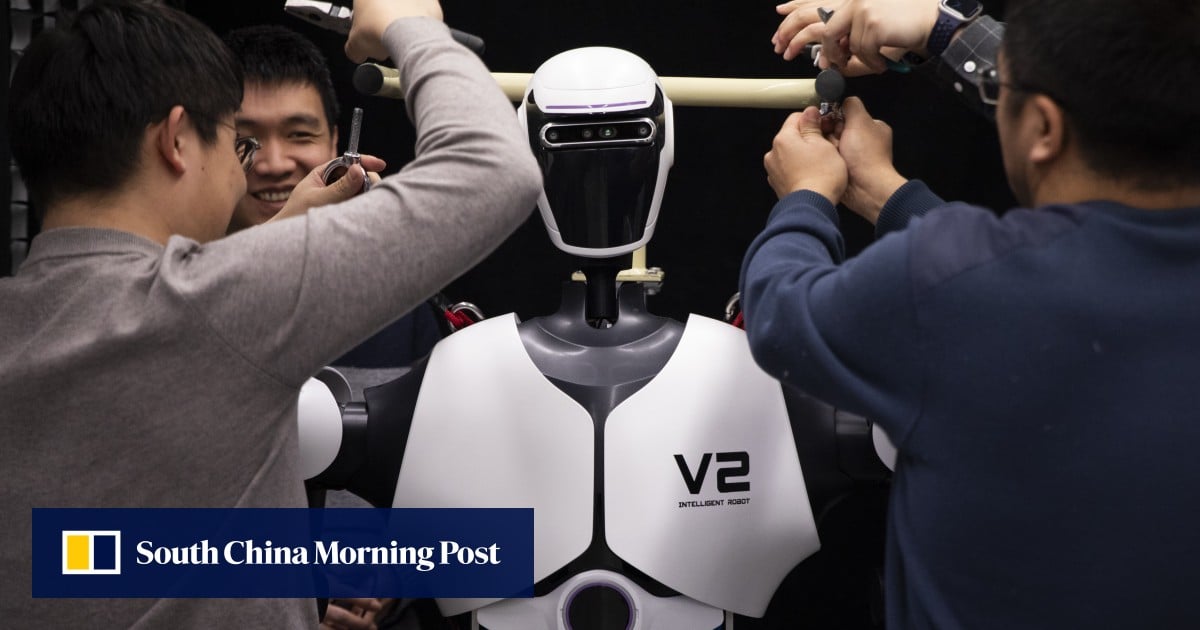China will launch an array of programmes and campaigns until 2026 to train digital engineers, technicians and workers in areas including big data, artificial intelligence, smart manufacturing, integrated circuits and data security, according to a Chinese government circular released on Wednesday.
The plan also aimed to attract foreign high-level digital talent, support overseas returnees starting innovative businesses and organise “high-level digital talent to return from overseas to serve the country”, the document said.
New productive forces mean “advanced productivity freed from traditional economic growth models” and feature “high technology, high efficiency and high quality”, Xi said during a study session of the central Politburo earlier this year.
It is widely regarded as Beijing’s therapy to pump up the slowing economy in the long term amid American technology export curbs and competition for hi-tech dominance with US-led Western countries.
“We’ll closely follow the demands from the digital economy and industrial digitalisation, support indigenous innovation of digital talents and create a large, quality and well-structured and distributed team of digital talents,” the circular said.
China faces a shortage of human resources in hi-tech areas. Its semiconductor industry has an estimated deficit of 200,000 workers this year, according to a white paper jointly published by the China Centre for Information Industry Development, a government think tank, and the China Semiconductor Industry Association (CSIA), a trade group.
A lack of suitable candidates for AI jobs has also been reported. For every five new AI jobs in China, there are only two qualified workers in the job market, according to a report published late last year by Maimai, a career social network.
The intelligent manufacturing sector was short of 4.3 million digital workers in 2022, according to a joint report released by Deloitte and Chinese firm Renrui Human Resources Technology last year. The gap will widen to 5.5 million by next year, the report forecasts.
Under the three-year plan, China will introduce professional titles for digital engineers, develop training for technicians and workers that is tailored to the needs of companies, and boost international talent cooperation for a digital workforce.
Chinese universities are required to introduce new majors related to the digital economy and improve interdisciplinary training.
Local governments are encouraged to provide perks for digital workers, including “support and convenience” in housing, start-up investment, schooling for workers’ children and employment for a worker’s spouse, according to the plan.
“It’s a step in the right direction to address China’s employment dilemma,” said an economist in Beijing who spoke on the condition of anonymity. “There’s pressure to create jobs to tackle overall unemployment, meanwhile companies are struggling to recruit qualified staff in their digitalisation and upgrade.
“[Overseas Chinese talent] should be convinced they are politically trusted amid rivalry between China and Western countries before they consider moving back to China,” the economist said.
“It’s hard to forecast how many of them will be attracted by the programme.”








/cdn.vox-cdn.com/uploads/chorus_asset/file/25425462/247099_Changpeng_Zhao_CVirginia_A.jpg)